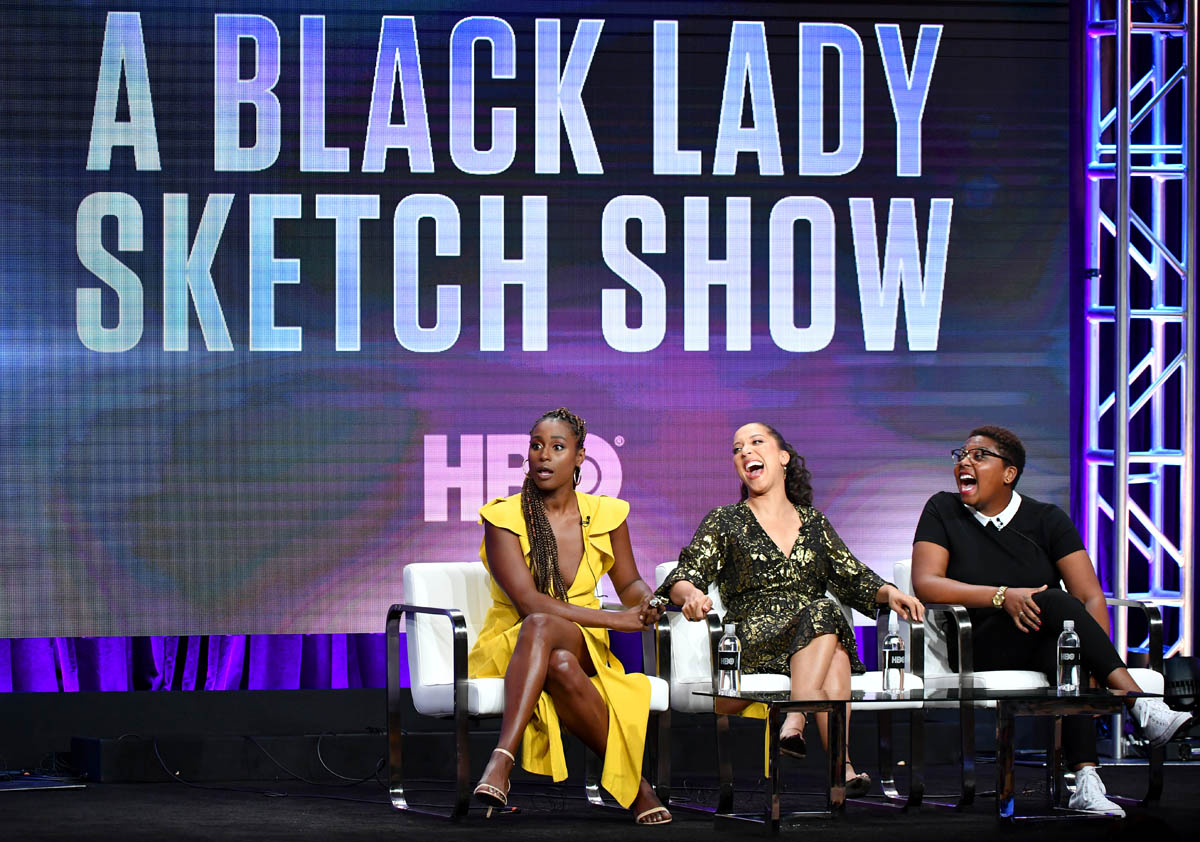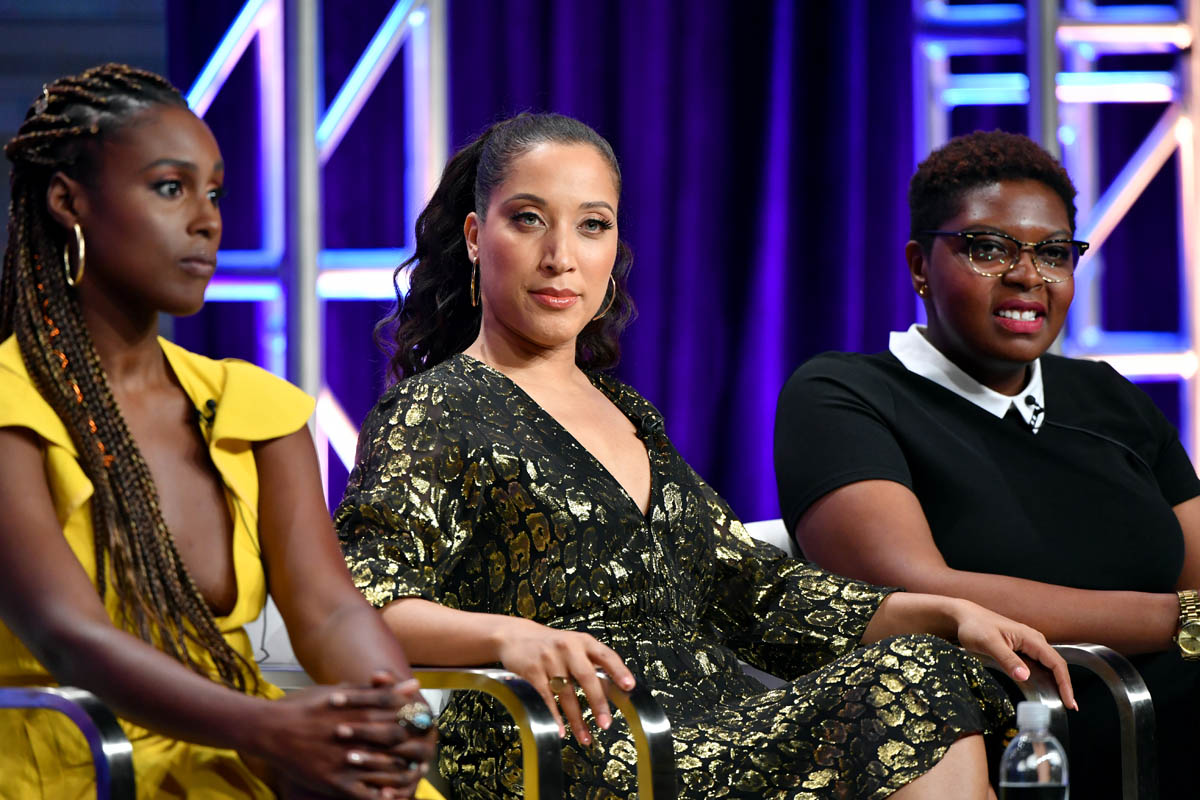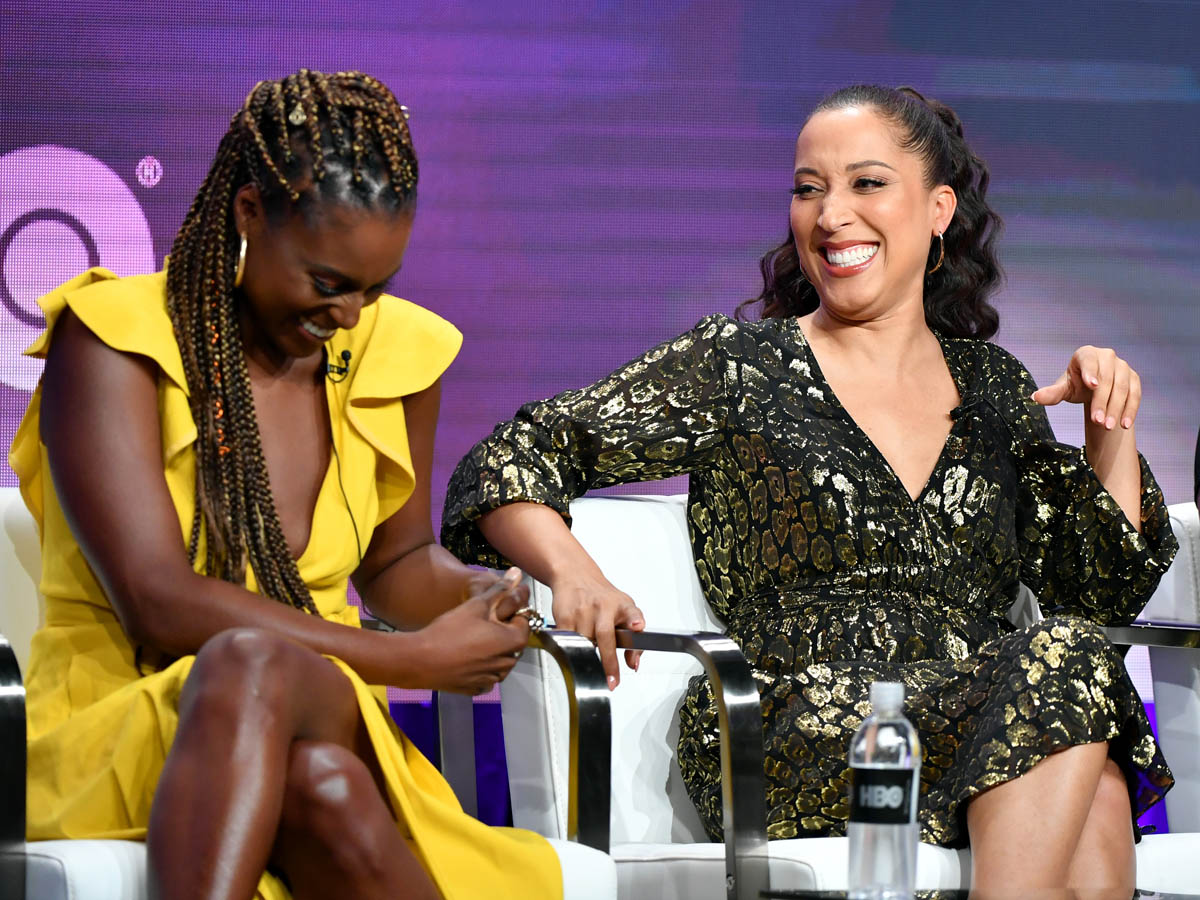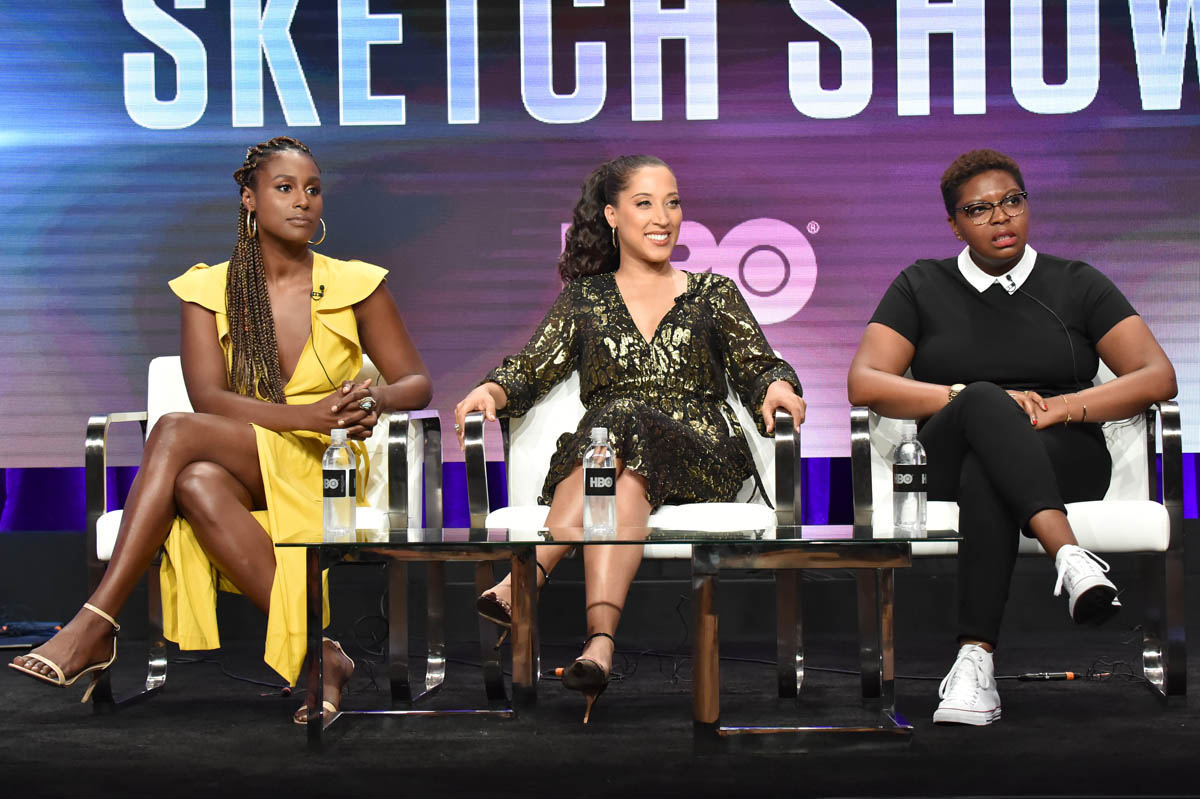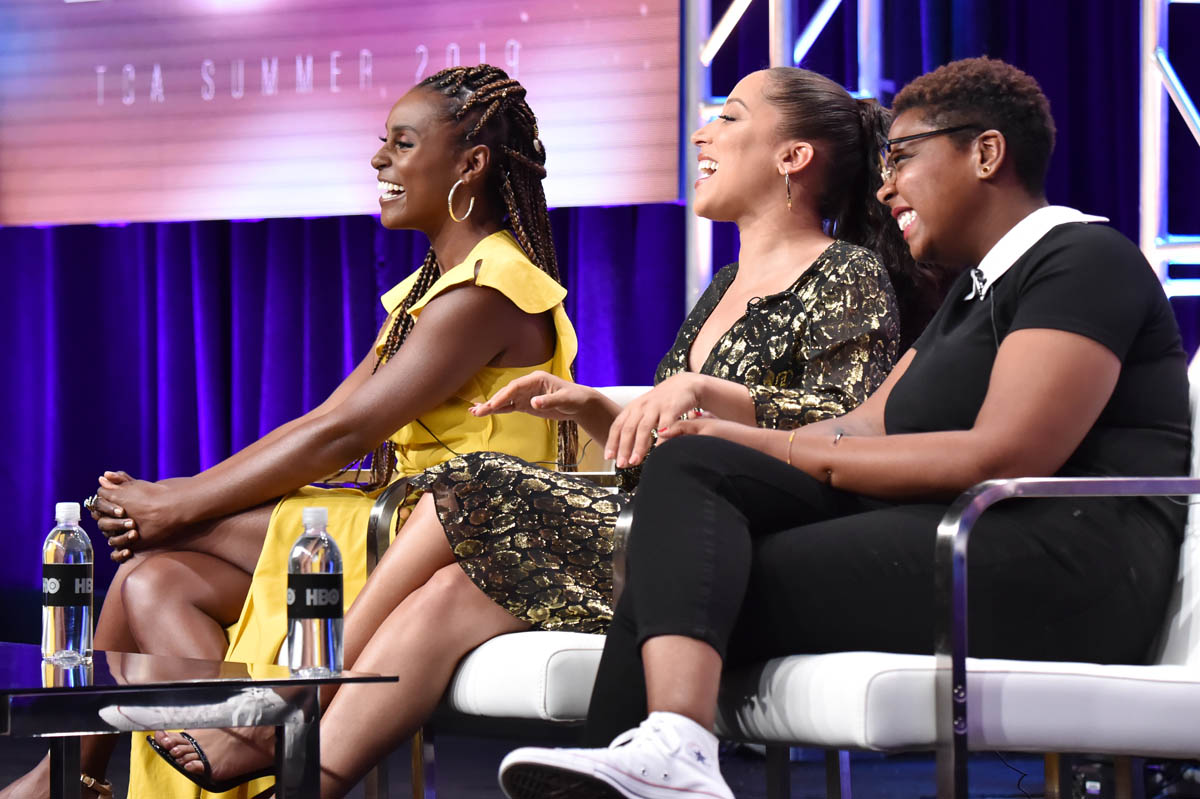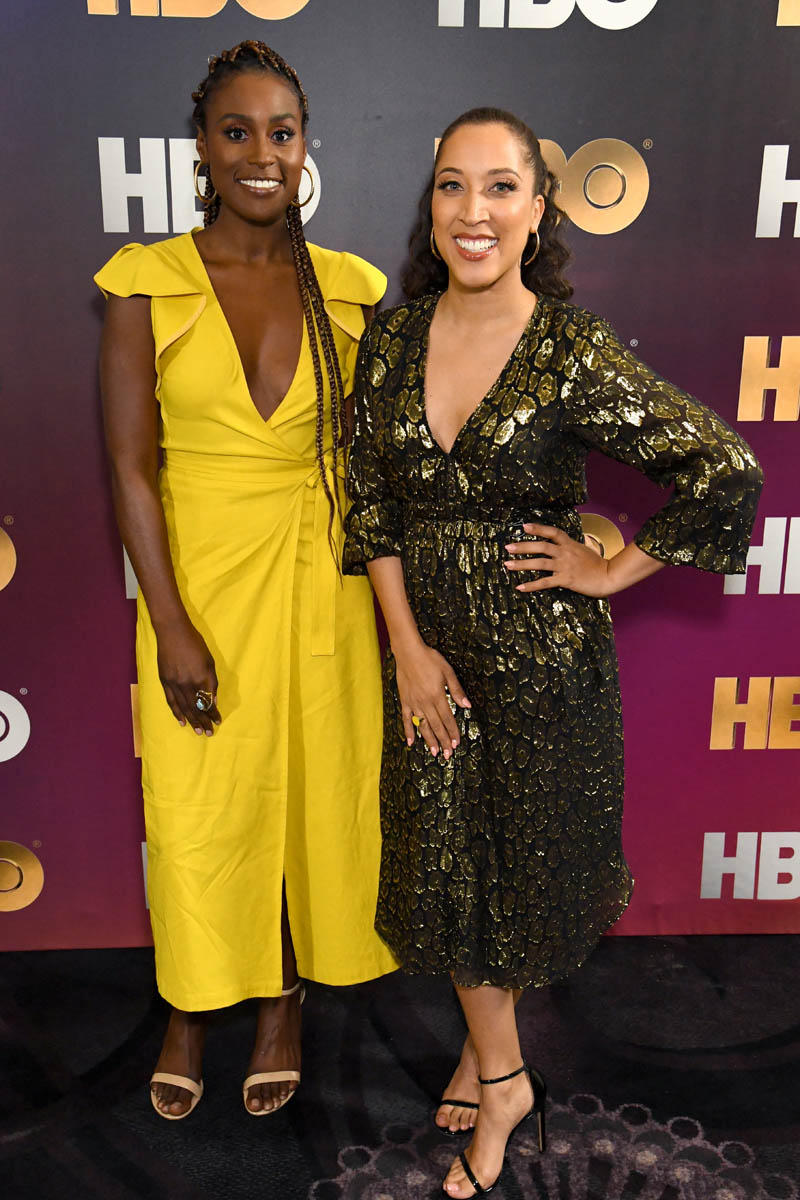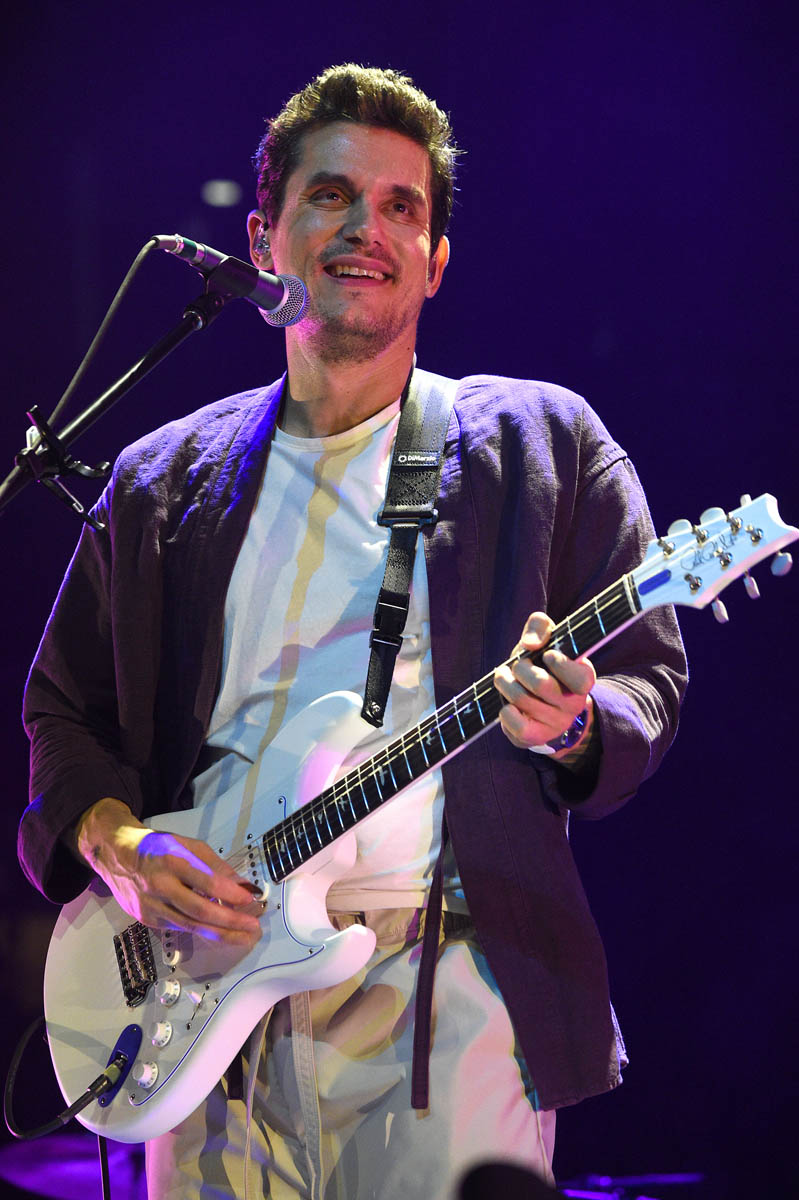A Black Lady Sketch Show
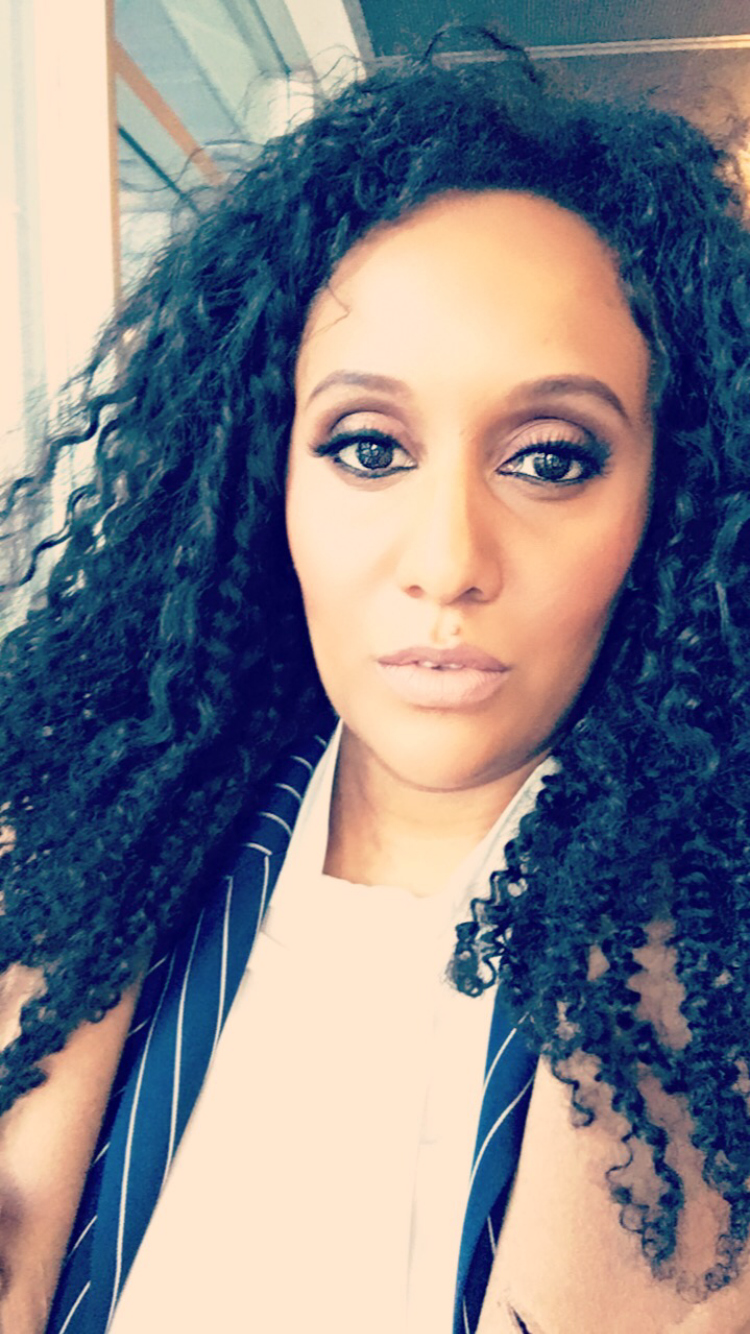

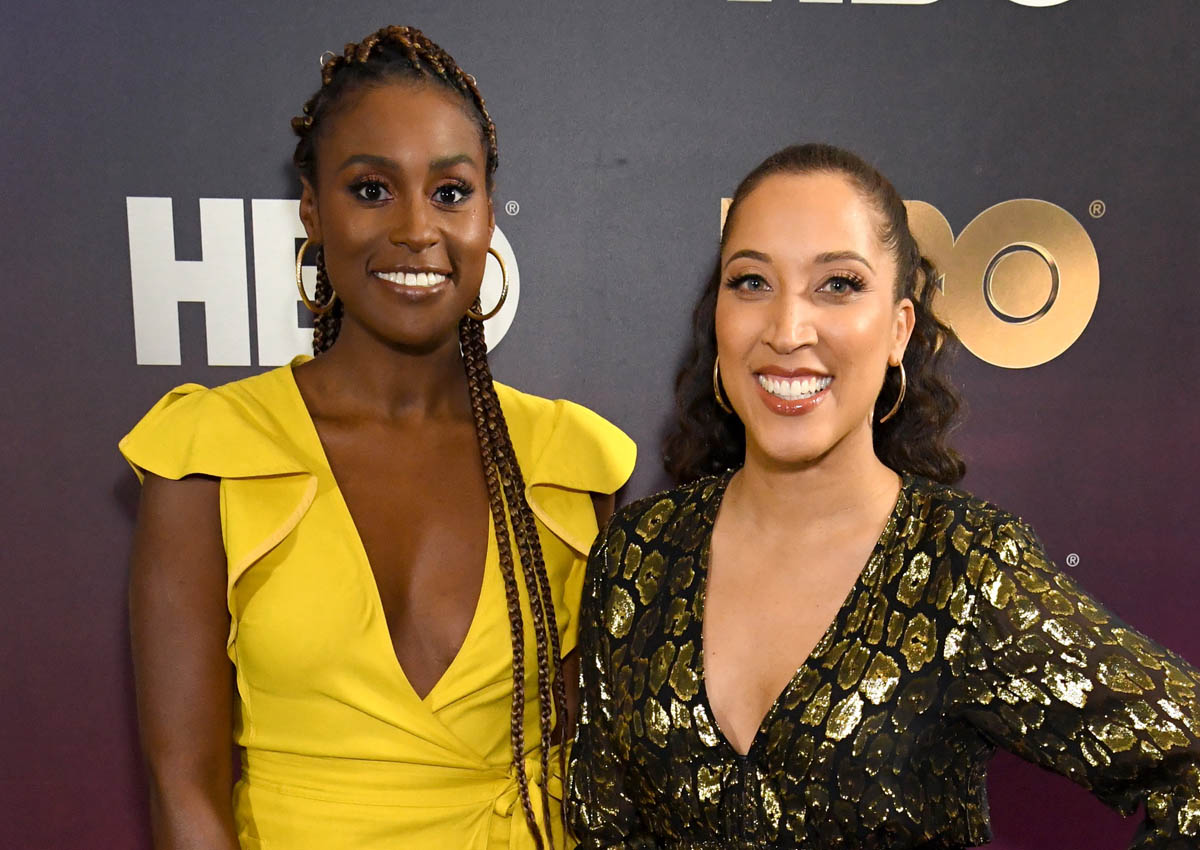
It was just this past January that it was announced that brilliantly vibrant comedian, former talk show host, and comedy writer Robin Thede would be creating A Black Lady Sketch Show on HBO. Executive produced by Thede herself and Issa Rae, it was clear that the project would be special, and it did not disappoint when it premiered last Friday.
This expansion of sketch comedy has been a long time coming, and it’s no surprise Black women are behind this hilarious and refreshing show, starring Robin, Ashley Nicole Black, Quinta Brunson, and Gabrielle Dennis. The show is grounded in typical sketch comedy formula with a home-base, in this case Robin’s home, as the women drink and small talk. While serving as a break from the sketches, these parts are full of references to the funny things that happen to us as Black women. The sketches then double down and exaggerate.
It’s fascinating to me that we are still in an era when cookie cutter television networks and television shows remain frozen in time, celebrating “diversity” when they hire one Black star, or one Black person behind the scenes. Tokenism is not only offensive and irrational, it also hurts the financial bottom line. This series already proves a philosophy that creatives like Issa Rae have been showing through their work: we are here, we have always been here, and boundaries set up by white typical industry standards do not apply; Black people are literally above it. When I hear people talking about Robin breaking boundaries (which is true), it’s clear that we need to avoid being stuck in models that make room for only one or a few of us. This show and projects like this make me feel the irony and cognitive dissonance when Black people celebrate the first anything. Instead of getting stuck in the stagnant box “diversity” champions, Robin blows past the irrelevant and speaks to Danette Chavez from AV Club on the difference between representation and diversity:
“Yeah, I’m not diverse. I’m Black. Don’t call me diverse, call me Black. I’m not diverse as a person. I’m diverse mentally, emotionally, but that’s not a race or an ethnicity. “Diverse.” Yeah, that’s ridiculous. And this show is definitely all about representation. It’s about showing Black women in so many different lights and so many different abilities. I mean, you’ve seen the show, you know how many characters we play. We each play dozens of characters throughout the season. Men, women, aliens, unnamed beings, we play it all—and to challenge the ideas of what Black women can do in comedy is true representation.”
If I have to choose my favourite sketches, the perfectly casted “Bad Bitch Support Group” plays on the impossible and often absurd beauty standards we endure and perform, all to avoid being a basic bitch. Ashley Nicole Black plays a secret spy, good at her job because people cannot help but ignore her presence. This hyper-erasure seems unrealistic while watching Ashley’s talent, but remembering how extraordinary Black women are overlooked in society everyday makes it true… and even funnier. Robin’s performance as a grotesquely problematic and overly sexual singer, whose legacy only lives on through grandson Chris Brown, was perfect. In the living room scenes, the women chat over who in the Black community is cancelled, and who can be shamed for still supporting them.
This show’s rawness is always juxtaposed with humour, making serious content totally comfortable in the comedy box. I can’t wait to see the rest of the episodes.

